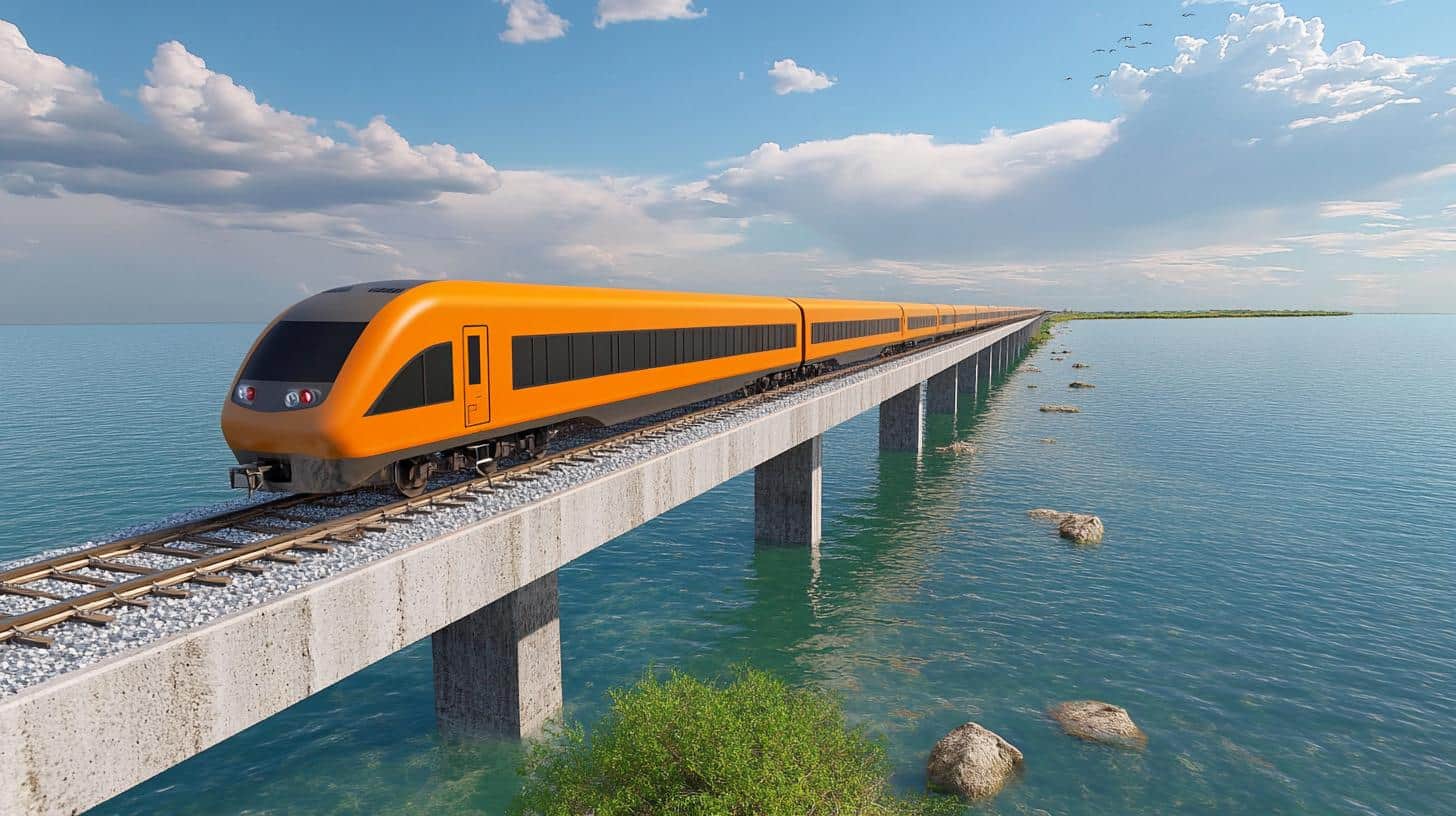Tanzania is making groundbreaking strides in transportation with the launch of its first electric railway. This new line promises to connect Dodoma, the nation’s capital, and Dar es Salaam, a vital port city along the Indian Ocean.
The potential impact of this development reaches beyond Tanzania’s borders. Tanzanian officials expect this electric railway to become a model for similar infrastructure initiatives in adjacent African nations. By enhancing connectivity to the Indian Ocean, the railway is poised to become a crucial transport link for the region.
The development of Africa’s railway network has attracted the attention of global powers. The United States and China are actively involved, vying for greater influence by pledging extensive financial support for rail projects across the continent. According to reports from the International Railway Journal, both countries are committed to investing hundreds of millions of dollars in these initiatives.
This infusion of international investment underscores the strategic importance of rail infrastructure in Africa. By offering increased accessibility and reducing transit times, enhanced railway networks could significantly boost regional economic growth. Tanzania’s endeavor to modernize its rail system sets the stage for a broader wave of development throughout East Africa.
In conclusion, the electric railway marks a new chapter in Tanzanian and East African transportation. As this ambitious project unfolds, it holds the promise of strengthening economic ties and catalyzing growth across the region, amidst a backdrop of international competition for developmental influence.
Tanzania’s Electric Railway: Revolutionizing Transport and Sparking Global Interest
Transformative Power of Electric Railways
The electrification of Tanzania’s railway not only signifies a leap in national transportation but also heralds potential ripples of progress and challenges that can impact the daily lives of people and the socio-economic landscapes of communities and countries on a broader scale.
Implications for Local Communities
For local communities, the launch of the electric railway between Dodoma and Dar es Salaam offers promising benefits. Firstly, it will likely create new job opportunities, not only during the construction and maintenance phases but also through stimulating local businesses as connectivity boosts trade. Farmers and local manufacturers could find new markets for their goods, promoting economic stability and growth in otherwise underdeveloped areas.
Environmental Considerations
The transition to electric railways could significantly reduce carbon emissions compared to traditional diesel-powered trains, a vital step in addressing climate change. However, while the reduction in air pollution is commendable, one must consider the environmental impact of electricity production. If not sourced from renewable energy, the environmental benefits might be diminished. This raises a crucial question: How can Tanzania ensure that its electricity production evolves alongside its transportation infrastructure in a sustainable way?
Balancing International Interests
The competing interests of the United States and China on African soil introduce both opportunities and challenges. While international investments can accelerate development, there is also the risk of becoming economically dependent on or politically influenced by these global powers. Tanzanian and neighboring governments must navigate this foreign involvement carefully, maintaining sovereignty while leveraging the positive aspects of global investment.
Advantages and Disadvantages
The advantages of this electrification are clear: reduced travel times, lower transportation costs, and a cleaner environment. However, it also brings potential disadvantages, such as the high initial financial investment that could place a significant burden on the country’s budget. There’s also the risk of underutilizing these infrastructure projects if complementary policies, such as supporting local industries, are not implemented.
Questions and Answers
– What does this project mean for Tanzania’s position in Africa? Tanzania positions itself as a regional leader in modern transportation infrastructure, potentially setting a benchmark for neighbors and attracting further investments.
– Could this model be replicated elsewhere on the continent? Absolutely, although success depends on localized factors such as political stability, economic policies, and resource availability.
A Controversial Tech Leap
Some experts argue whether such a substantial investment in rail might be better allocated towards improving road networks given Tanzania’s current economic stature. Meanwhile, advocates insist that rail promotion is crucial for long-term integrated network development.
For more insights into global railway projects and partnerships, visit Rail Journal and BBC News.
The article has been updated: 2024-11-09 06:42
Here are some suggested related links to include in your post titled “Tanzania’s Revolutionary Electric Railway Set to Transform East Africa”:
1. The Economist – A leading global source for expert analysis on economic and political developments, including infrastructure projects in East Africa.
2. BBC News – A reliable source for breaking news and reports on international developments, including transportation advancements in Tanzania.
3. Africa.com – A comprehensive resource for news and information on African countries, economies, and development projects.
4. World Bank – An international financial institution that provides information on economic development initiatives, including infrastructure projects across Africa.
5. Reuters – A prominent global news organization offering updates on international business, politics, and developments in transportation across the East African region.
6. United Nations – The UN’s official site, featuring documents and initiatives related to sustainable development and infrastructure improvements in Africa.
These links will provide readers with additional context and valuable information related to the topic of Tanzania’s electric railway and its impact on East Africa.
The article has been updated: 2024-11-09 20:14
How will Tanzania’s revolutionary electric railway transform transportation in East Africa?
Tanzania’s revolutionary electric railway is set to significantly transform transportation in East Africa by providing a fast, efficient, and environmentally friendly mode of travel. This railway aims to enhance connectivity between major cities and regions, reducing travel time and costs. Additionally, it will facilitate trade by improving access to ports and markets, thus boosting economic growth in the region. The project is expected to create thousands of jobs during and after construction, promoting local industries and economies. Furthermore, the use of electric trains will contribute to reducing carbon emissions, aligning with global efforts for sustainable transport solutions.







